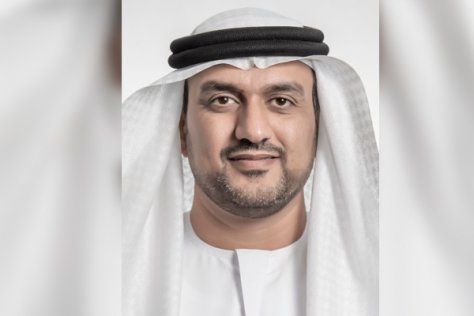Deputy Editor Giorgia Guantario spoke to Dr Youssef Al Hammadi, chief intelligence officer, at the Special Olympics World Games Abu Dhabi 2019, to discuss how data can create new opportunities instead of challenges.

The Abu Dhabi Special Olympics saw over 7000 athletes with intellectual disabilities from 195 countries coming together to participate to the event, and even more people coming to witness the games, races and sports being played.
The amount of data produced by these people was astonishing, tells us Dr Youssef Al Hammadi, and although this could’ve created some great obstacles to the success of the event, all the data was actually what made it so successful.
“From the get-go, we wanted to embed analytics as a key pillar to deliver the Games. With that in mind, we needed to find a way to connect all the data we had.
“This was spread over more than 25 data sets, and comprised of pictures, videos, numeric data, more or less mature, on both legacy and newer systems – it was a challenge, but we were able to succeed with the help of SAS,” explained Dr Al Hammadi.
The Special Olympics World Games Abu Dhabi leadership was also very keen on having a partner that would share the same core beliefs they had, as well as being fully committed to the Games and having the level of technological readiness needed to work with such a vast amount of data.
“SAS, being the leading company in data and analytics, was the best fit for us. Their system not only managed to connect all our data, but it also drove insight from that data and turned it into a clean and understandable visual that our leadership could consume.”
The athletes Smart Watches also played a huge part in delivering insight from some very important data. Having 7000 athletes with intellectual disabilities coming from all over the world was a huge responsibility for Dr Al Hammadi and his team.
“We had three main goals that we wanted to achieve from the use of data and analytics – making sure our athletes were healthy and safe, delivering an enjoyable experience for all the attendees, and using the data to make the right decision. The first one was arguably the most important of all.
“We knew how hard it would’ve been on the athletes’ families to have them so far away from home, so we used the Smart Watch to ease their minds. The watches could monitor the athletes’ vitals, heart rate, as well as their location – it was also connected to our transport and hospitality system,” continued Dr Youssef.
The Special Olympics in Abu Dhabi also used technology, including AI, to create the best experience possible from the thousands of attendees.
Using a mobile application, attendees were able to receive recommendations on sports events, check past records, use translation services and chatbots.
The organisers, on the other hand, were able to track the venue capacity, people attendance, and use the data to relocate volunteers where most needed.
The amount of data was clearly a window of opportunity for the Games, but this is not always the case for many organisations in the region.
Dr Al Hammadi shared some of the challenges he believes are preventing organisations in the region from moving forward in their data strategy.
“I believe the challenges that come with data are of a global nature, and although in the UAE we are pushing the boundaries with technology, one of the biggest problems is the lack of human talent.
“This is why we recently established the Mohammed Bin Zayed University of Artificial Intelligence – we want to provide a platform to build great talents in analytics, data and AI,” explained Dr Al Hammadi.
Other challenges, he continues, are integration within data sets, information security, data confidentiality, but also culture.
“We need to build a culture of trust between people to share and integrate data. The technicality and use of data are the least worrying aspect of this process,” he concluded.





